“It wasn't until we listened back to it that we realized, ‘Holy s***, this song's really got something.'” Robbie Robertson told us how one simple change helped the Band save "The Weight" from oblivion
In our 1995 interview, the guitarist said this classic hit was originally a B-list song intended as filler
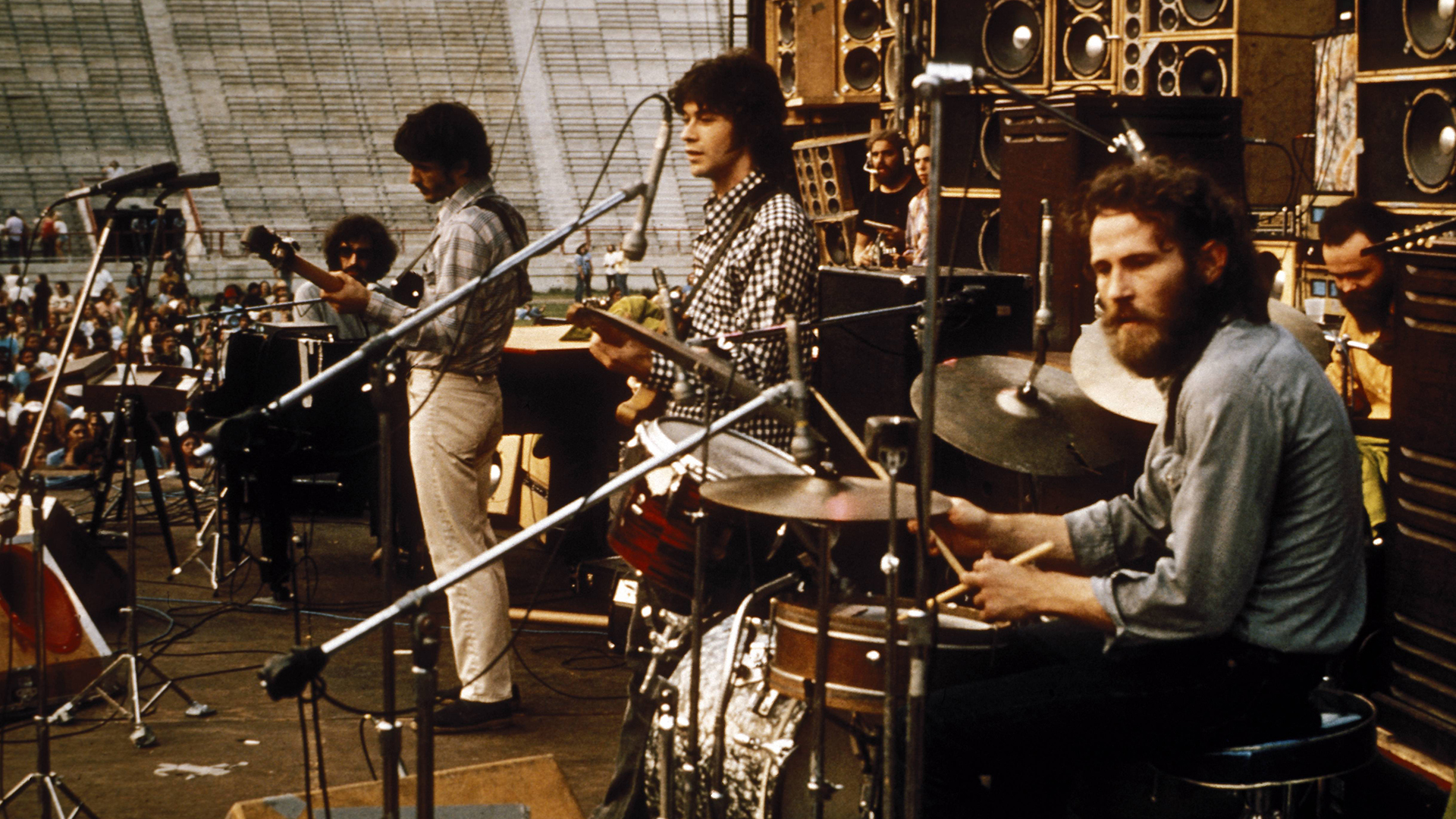
“We'd tried it a number of different ways, but we weren't that excited about it,” Robbie Robertson told Guitar Player in our May 1995 issue. “So our attitude was, ‘Well, just in case something else isn't working, we've got this song to fall back on.’”
“This song” was “The Weight,” a track that's not only one of the most celebrated tunes in the Band’s catalog but also one that belongs to American folk heritage alongside Woody Guthrie’s “This Land Is Your Land.” As sure as Guthrie’s tune affirmed our shared claim to this country's beauty, bounty and promise of prosperity, Robertson’s ballad lifted the lid on the complexities of the American dream and the burden that might await anyone who tries to lend a neighborly hand.
“The Weight” is one of 11 songs on Music From Big Pink, the debut album from the Band: guitarist Robertson, bassist Rick Danko, keyboardist Garth Hudson, pianist Richard Manuel and drummer Levon Helm. Big Pink came out in July 1968. One month later, “The Weight” was issued as the album’s only single. It hit 63 on the U.S. charts and 35 on the roster in Canada, the home country for four-fifths of the group's members (Helm hailed from Arkansas). It was an impressive performance for an acoustic guitar–driven folk-rocker released in a month when the Who, the Doors, Cream, Iron Butterfly, Deep Purple and similar hard-rock and psychedelic acts were ruling pop's airwaves.
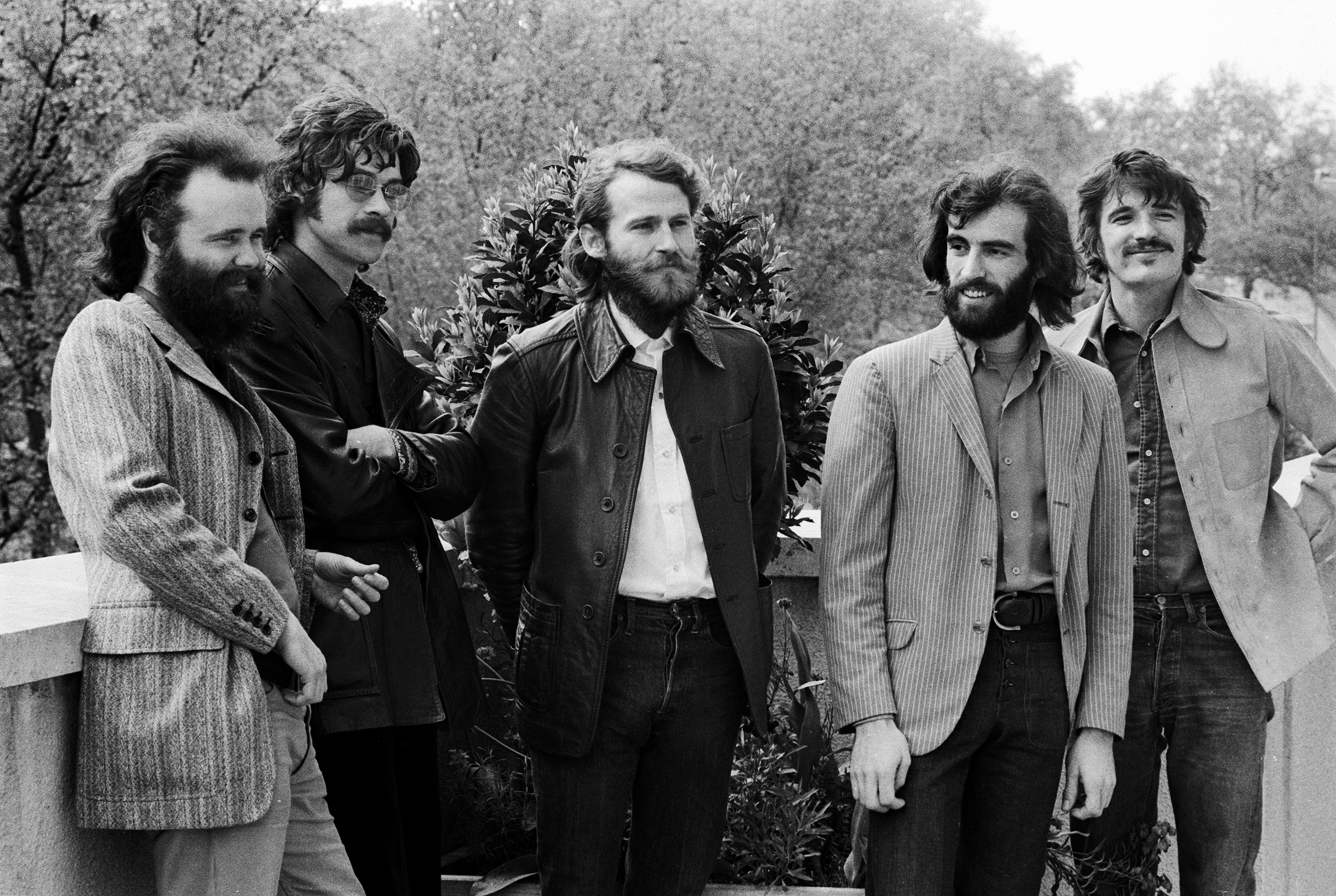
Songwriters and musicians are fond of saying they had no particular excitement about their most famous songs — that they didn’t anticipate the tracks would become hits and connect with listeners on a grand scale or at a deep emotional level. Honesty? False modesty? Historic reframing?
Regardless, “The Weight” connected with listeners, particularly in the burgeoning back-to-nature hippie movement. The year after its release, the song was lovingly showcased in Easy Rider, America's seminal counterculture film, where it provided a meditative soundtrack as Peter Fonda and Dennis Hopper glided their choppers between the wind-whipped sandstone buttes of Arizona’s Monument Valley.
But “The Weight” didn’t belong to the antiestablishment. The song’s impact was felt across the pop music landscape. Singer Jackie DeShannon cut her cover within weeks of Big Pink’s release and had it on the charts at number 55 — eight higher than the Band — one month after the original single was issued. More tellingly, “The Weight” connected with Black performers, including the Supremes but also pop vocalists with gospel backgrounds, such as the Staple Singers and Aretha Franklin, whose top-20 1969 cover featured Duane Allman on slide guitar.
That spiritual linkage is no coincidence. Robertson’s gothic, bucolic burlesque is a parable as relevant as any in the Bible. In “The Weight,” a road-weary traveler arrives in Nazareth, PA, where he’s come to pay respects to a few strangers on behalf of his friend, Miss Fanny. There he encounters a succession of characters, each of whom wants to saddle him with a burden of their own: a dog, a woman, the Devil.
All the latest guitar news, interviews, lessons, reviews, deals and more, direct to your inbox!
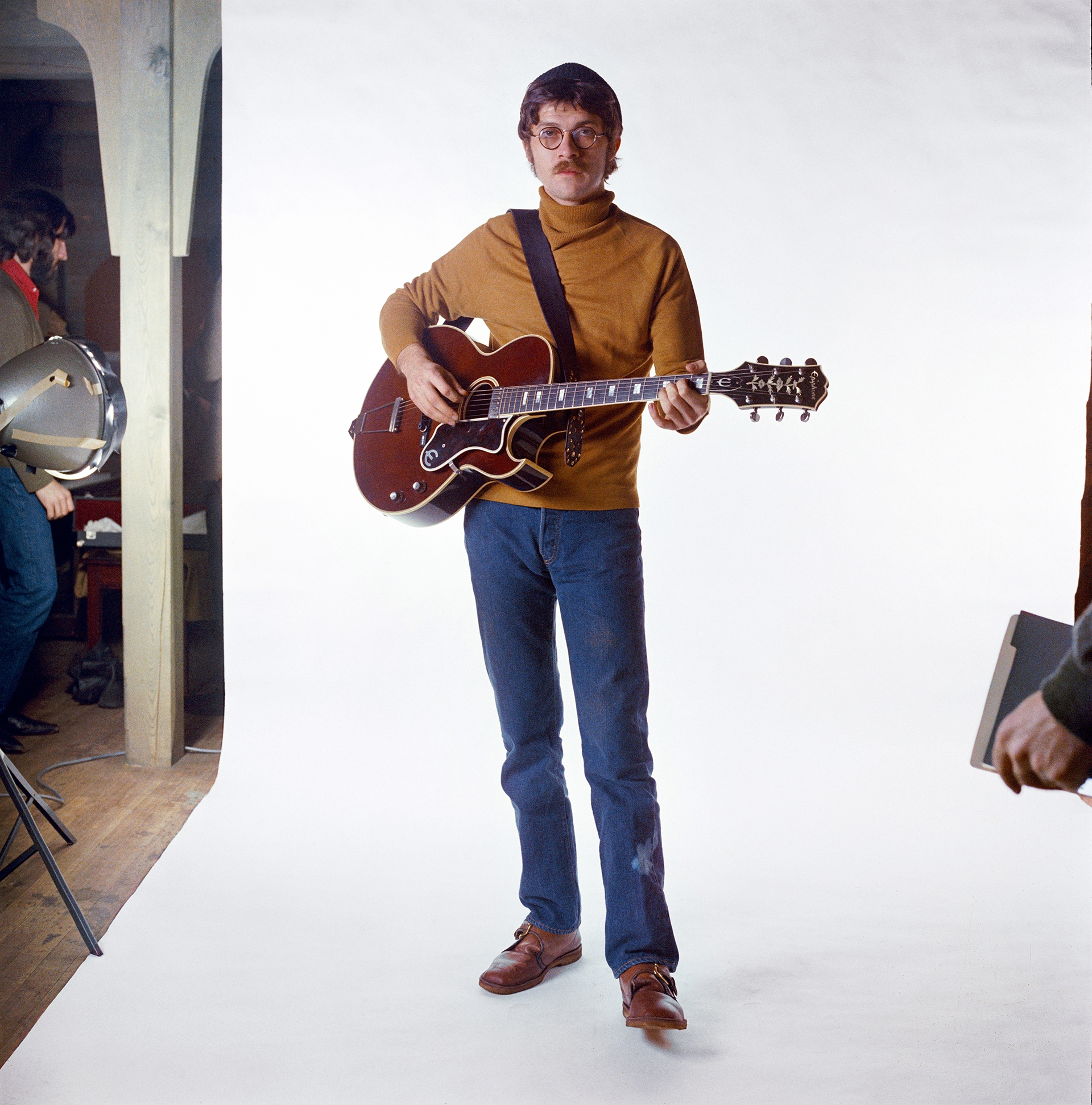
“So the guy goes and one thing leads to another,” Robertson explained in Jake Grogan’s 2018 book, Origins of a Song, “and it's like ‘Holy shit, what's this turned into? I've only come here to say “hello” for somebody and I've got myself in this incredible predicament.’ ”
Robertson’s premise for “The Weight” was inspired by the avant-garde surrealist movies of director Luis Buñuel, which explored themes of society’s injustices and hypocrisies and religion’s absurdities. “In Buñuel there were these people trying to be good,” Robertson explained to Grogan,“and it's impossible to be good.”
It’s hard to imagine that Robertson’s insightful songwriting effort might have come to nothing had the Band not needed a song to "fall back on.” But as he explained to Guitar Player, “The Weight” simply wasn’t working.
Until suddenly it was. In the end, it took a small game of musical chairs to set things right.
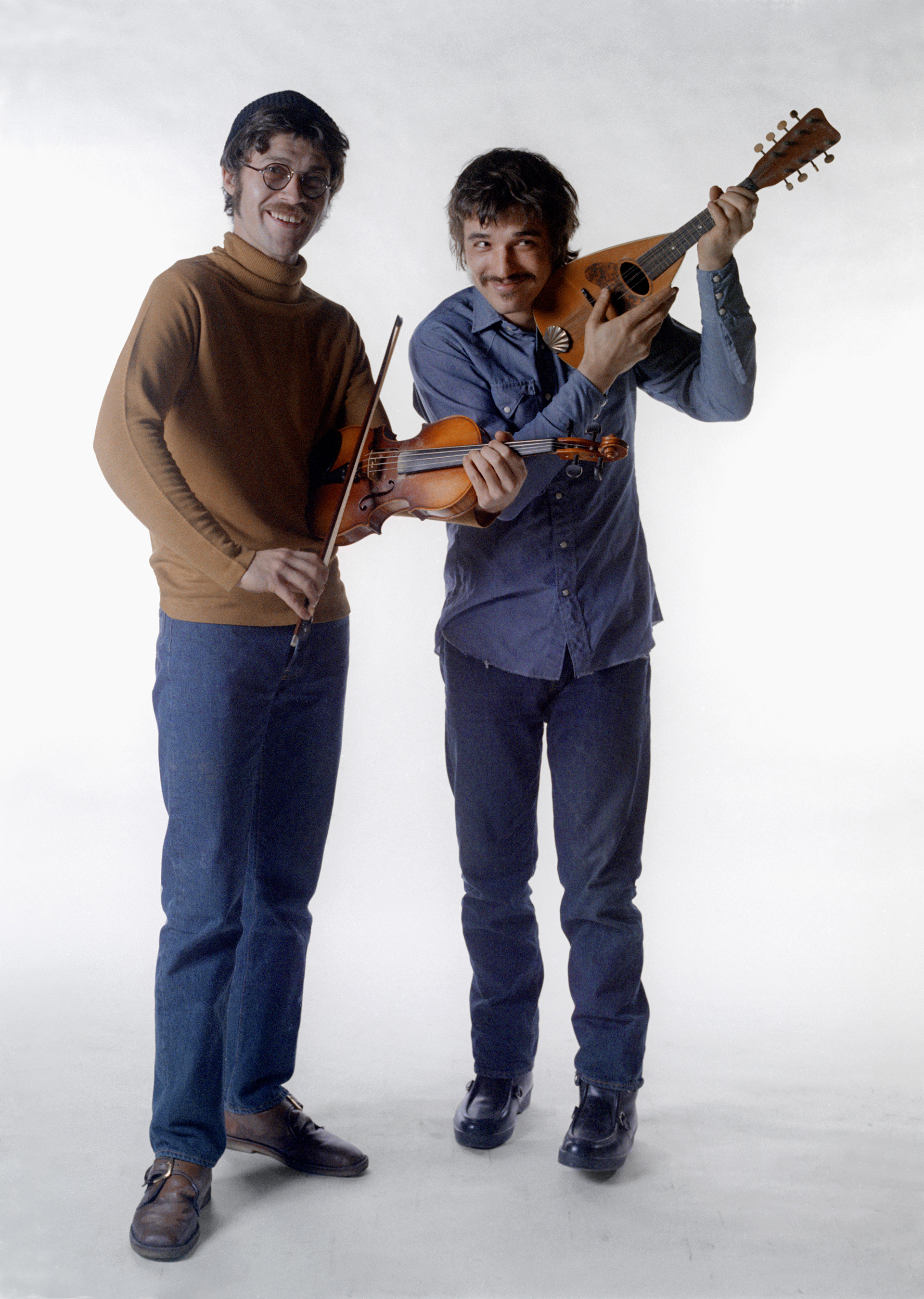
“So we were in the studio,” Robertson continued, “and just out of trying to not be boring, we said, ‘Well, let's give that “Take a load off Fanny” song a shot.’ And very quickly someone suggested that maybe Garth should play piano and Richard should play organ, because it seemed like there was room for some fills that would sound more natural coming from the piano than the guitar.” Of the two keyboardists, Hudson had the chops for such musical filigree. "So they swapped, and we recorded it.
"It wasn't until we listened back to it that we realized, ‘Holy shit, this song's really got something.’ ”
For a tune set in the hometown of Martin Guitars, “The Weight” owes a great deal to Hudson’s rising gospel piano runs. They lift the song from its languorous verses to a soul-stirring singalong chorus that culminates in not full-throated emotion but its opposite — a heavenly harmonized sigh on which breath itself hangs for those few seconds before the singers deliver the payoff: “You put the load right on me.”
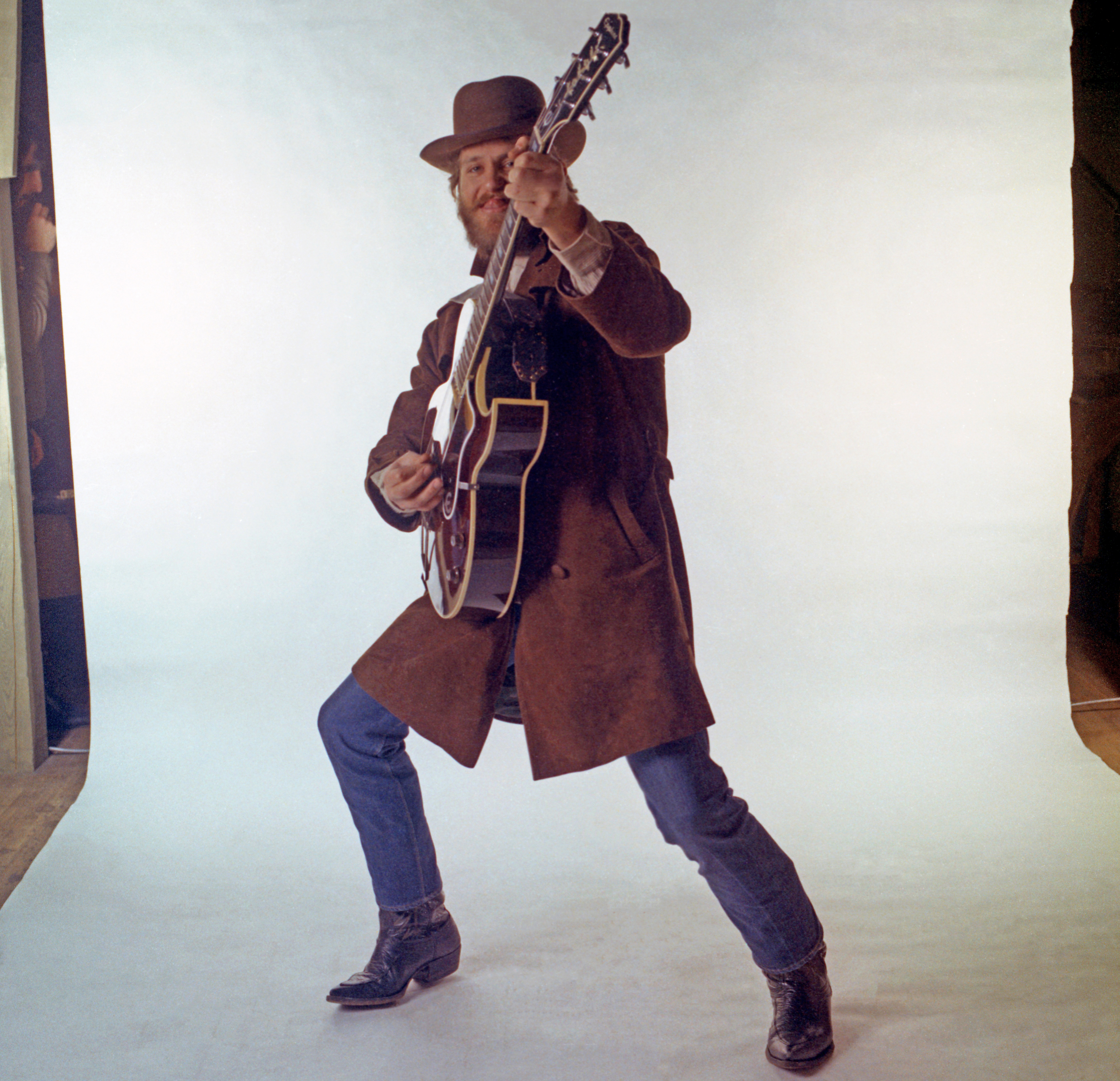
If Hudson is “The Weight”’s lift, Levon Helm is its heart and soul. His impeccable vocals aside, the drummer was an appropriate choice to sing a song — all of it save Danko’s “Crazy Chester” verse — about a lonely traveler carrying another soul’s burden. Following the Band’s support of Bob Dylan for his first electric tour in 1965, Helm had become disheartened by the negative reception the newly rocking folk performer received for his evolving sound. He quit the group and spent the next two years wandering the American South. By 1967, Helm was, like the narrator in “The Weight,” looking for a place to lay his head and returned to the Band.
“Ironically,” Danko told Guitar Player in that same 1995 issue, “since Levon had just come back into the band when we got signed to Capitol, that was the only song he sang on Big Pink — Richard and I sang the rest.
“Of course, at the time we had no idea how big it was going to become,” he obliged. “We were just doing our best to make music that had rhythm and soul.”
Christopher Scapelliti is editor-in-chief of GuitarPlayer.com and the former editor of Guitar Player, the world’s longest-running guitar magazine, founded in 1967. In his extensive career, he has authored in-depth interviews with such guitarists as Pete Townshend, Slash, Billy Corgan, Jack White, Elvis Costello and Todd Rundgren, and audio professionals including Beatles engineers Geoff Emerick and Ken Scott. He is the co-author of Guitar Aficionado: The Collections: The Most Famous, Rare, and Valuable Guitars in the World, a founding editor of Guitar Aficionado magazine, and a former editor with Guitar World, Guitar for the Practicing Musician and Maximum Guitar. Apart from guitars, he maintains a collection of more than 30 vintage analog synthesizers.

